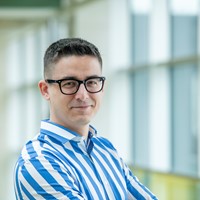
Electronics and Electrical Engineering

Dr. Serb is a reader in Unconventional AI Hardware Technologies at the University of Edinburgh.
He is a MIET and SMIEEE.
He has led a grant portfolio of ~£2M worth of projects, including a DSTL contract for studying the feasibility of adiabatic capacitive neural networks and the UKRI New Investigator Award "ANAGRAM".
He has further been a co-investigator in UKRI MINDS CDT.
He has supervised 20+ PhD students and 6× postdocs. His research interests span across circuit and system design and AI, with particular focus on emerging technologies such as memimpedance elements.
He has published 50+ journal articles and 50+ conference papers, and filed 5× patents.
Furthermore, he is co-founder and CTO of ArC instruments ltd., a company that manufactures instrumentation for memimpedance device characterisation and testing (https://www.arc-instruments.co.uk/).
PhD degree in EEE - Imperial college, London, 2014.
MEng degree in BioMedical engineering - Imperial college, London, 2009
MIET - Member of the IET
SMIEEE - Senior member of the IEEE
ELEE08015 - Digital System Design 2
PGEE11136 - Applications of Sensor and Imaging Systems (component module leader)
@pjwhands
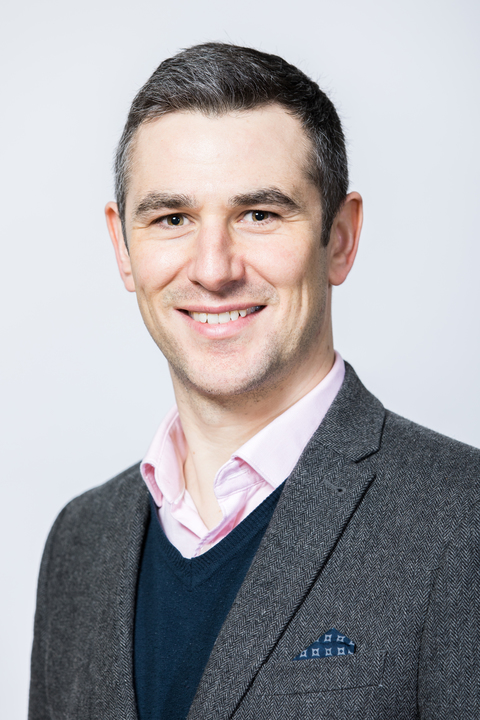
- 2007-2012: Postdoctoral Research Associate, Department of Engineering, University of Cambridge
- 2003-2007: Postdoctoral Research Associate, Department of Physics, University of Durham
- 1995-1999: MSci Physics, University of Durham
- 1999-2003: PhD Condensed Matter Physics, University of Durham
- Microelectronics 2 (Lecture course)
- Electromagnetics 3 (Lecture course)
- Electromagnetics 4 (Lecture course)
- Applications of Liquid Crystals in Sensing (Lecture course)
- Electrical Engineering 1 (Tutorials)
- Electronics Project Laboratory 2A (Labs)
- Electronics Project Laboratory 2B (Labs)
- MicroRNA biosensors
- Adaptive photonic systems and devices
- Liquid crystal lenses
- Polymer composites
- Liquid crystals
- Liquid crystal lasers
- Wireless and flexible pressure sensors for wearable electronics
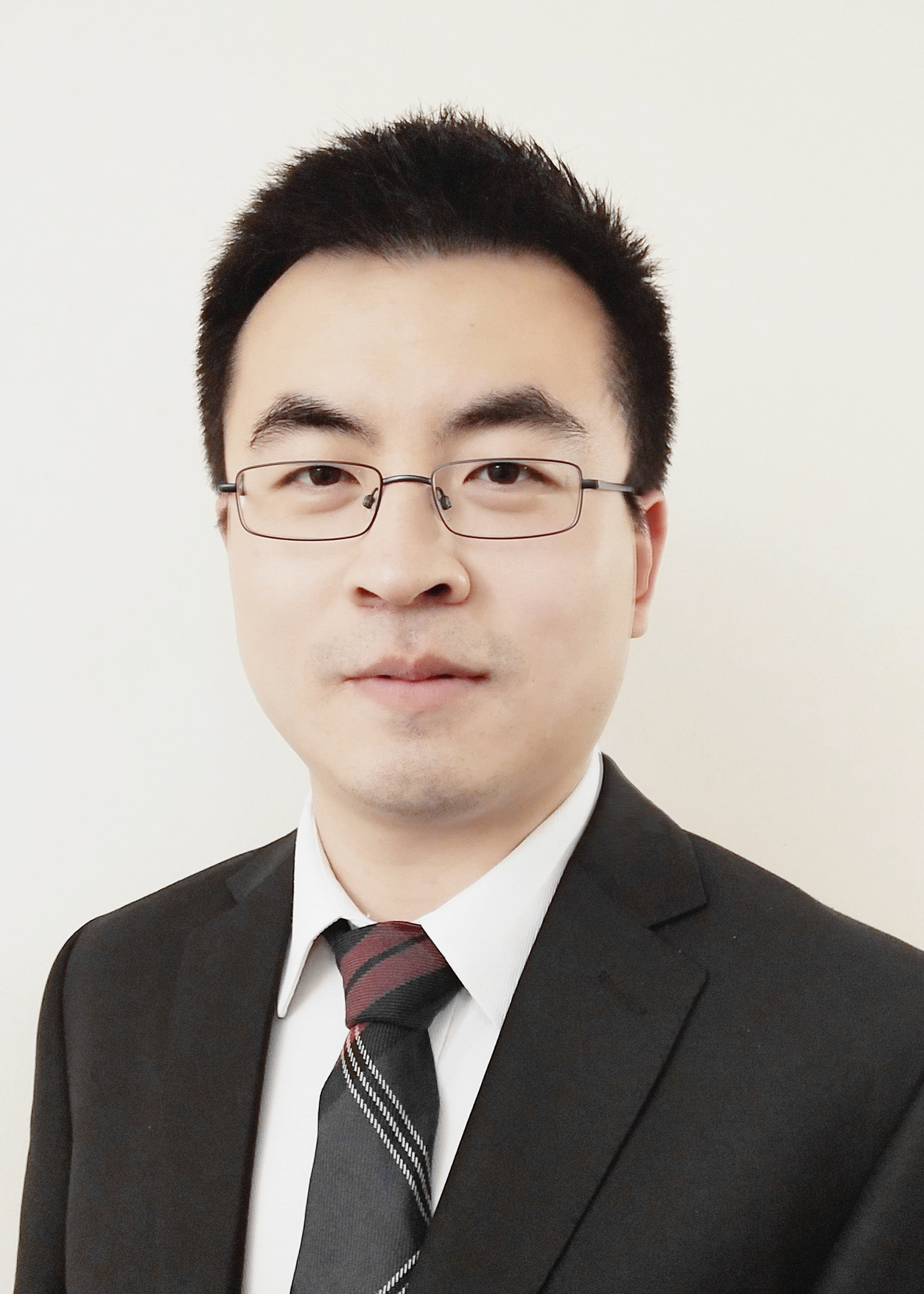
Dr. Yunjie Yang is a Senior Lecturer (US Equivalent: Associate Professor) at The University of Edinburgh. He is also an affiliate of the Edinburgh Futures Institute (EFI), the Edinburgh Generative AI Laboratory (GAIL) fellow, and part of the Edinburgh Centre for Robotics. He was the Chancellor’s Fellow in Data Driven Innovation (2018-2023) and Bayes Innovation Fellow (2023-2024). He received his PhD in Engineering Electronics from The University of Edinburgh, MSc in Control Science & Engineering from Tsinghua University, and BEng in Measurement & Control Engineering from Anhui University. Since 2018, he briefly worked as a Postdoctoral Research Associate in Chemical Species Tomography at the University of Edinburgh before securing the lectureship.
His research interests focus on AI-powered sensing and imaging, soft sensors & electronics for robotics, and embodied AI. His research takes a highly interdisciplinary approach, integrating Sensors, Materials, AI, Tomography, and Robotics (SMART) to advance autonomous physical intelligence. It has led to over 150 peer-reviewed journal and international conference publications, many of which were published in high-impact journals such as Nature/Cell portfolio journals (e.g., Nature Machine Intelligence), IEEE TNNLS, TMI, TIE, TII, TBME and TIM. His research has been licensed to overseas research institutes and industry partners and received wide media coverage, including BBC, EFE, USA Today and STV. He is the awardee of the prestigious European Research Council (ERC) Starting Grant (2024-2029) and ERC Proof of Concept Grant (2026-2027).
Dr. Yang serves as the Associate Editor of IEEE Transactions on Instrumentation and Measurement, the Editorial Board Member of Scientific Reports, the Guest Editor of IEEE Sensors Journal, and the regular reviewer for over 70 high-impact international journals (including Nature Communications, PNAS, TRO, TMI, TIE, TII, TPAMI). He served as the track/session chair of several international conferences and was frequently invited for keynotes/seminars. He is the recipient of the 2024 IEEE J. Barry Oakes Advancement Award (For demonstrated exceptional expertise, innovation and leadership in the field of Instrumentation and Measurement), 2015 IEEE I&M Society Graduate Fellowship Award, and multiple Best Paper/Poster Awards. He is a Senior Member of IEEE, a Fellow of the Young Academy of Europe (FYAE), a Fellow of the International Society for Industrial Process Tomography (FISIPT), and a Fellow of the Higher Education Academy (FHEA).
More information about the Yang Research Group: UoE SMART Group www.yangresearchgroup.com
Press coverage:
- UoE: https://www.ed.ac.uk/news/gloves-to-help-robots-get-to-grips-with-human-tasks
- EI: https://edinburgh-innovations.ed.ac.uk/news/sensor-gloves-could-help-robots-get-to-grips-with-human-tasks
- Channel 4: https://www.channel4.com/news/uk-scientists-finally-granted-eu-funding-post-brexit
- ERC StG: Dr Yunjie Yang awarded €1.5 million European Research Council Starting Grant | School of Engineering
- BBC: https://www.bbc.co.uk/iplayer/episode/m001m1mr/click-medical-marvels (from 8:12)
- DDI case study: https://ddi.ac.uk/case-studies/smart-e-skin-for-soft-robotic-perception/
- STV: https://news.stv.tv/east-central/edinburgh-university-researchers-develo...
- EFE: Crean la primera "piel electrónica" para que los robots sientan (efe.com)
- The Independent: Best inventions and discoveries of 2023: From robot skin to mind-reading caps | The Independent
- Evening Standard Podcast: https://play.acast.com/s/tech-science-daily/e-skin-boosts-robot-self-awareness
- Metro: https://metro.co.uk/2023/02/24/scientists-develop-electronic-skin-that-allows-robots-to-feel-18340234/
- The Independent: https://www.independent.co.uk/tech/robots-self-aware-ai-skin-b2288369.html
(Office: 1.13 Alexander Graham Bell (AGB) Building)
- Doctor of Philosophy (PhD), The University of Edinburgh, UK
- Master of Science (MSc) (Outstanding Graduate and Thesis), Tsinghua University, China
- Bachelor of Science (BEng) (Outstanding Graduate), Anhui University, China
- Senior Member of IEEE
- Senior Member of IEEE I&M Society
- Member of IET
- Fellow of ISIPT
- Fellow of Young Academy of Europe (FYAE)
- Fellow of Higher Education Academy (FHEA)
- Signals and Communication Systems 3 (ELEE09027)
- Digital System Laboratory 3 (ELEE09035)
- Electrical Engineering 1 Tutorial (ELEE08001)
- Supervision of PhD, MSc, MEng and BEng projects
- Soft sensors & electronics
- Robotic perception (especially flexible tomography)
- Physical and embodied intelligence
- Tomographic imaging and applied machine learning
We welcome undergraduates, graduates, and postdocs who are interested in joining our group. Please feel free to contact us at anytime.
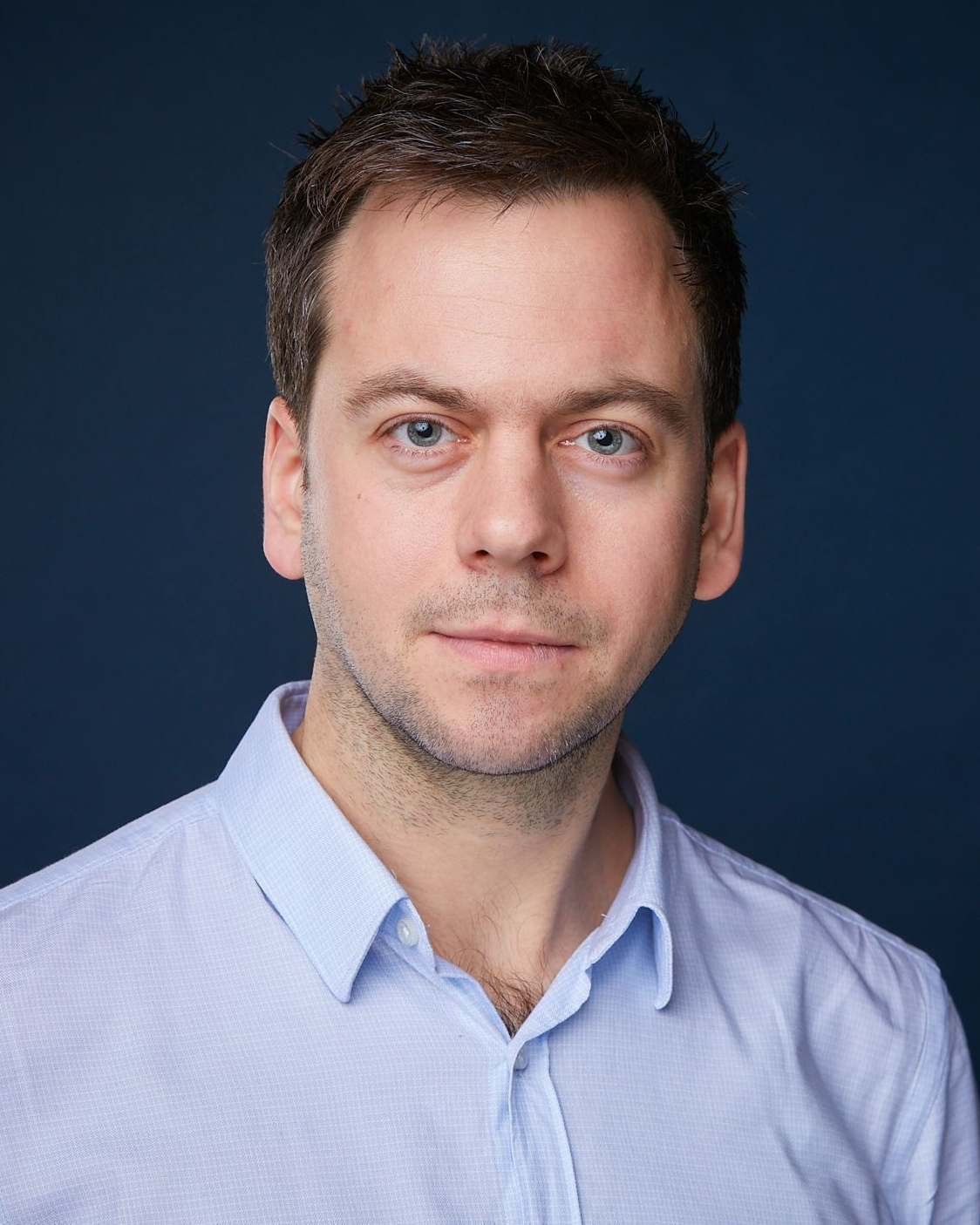
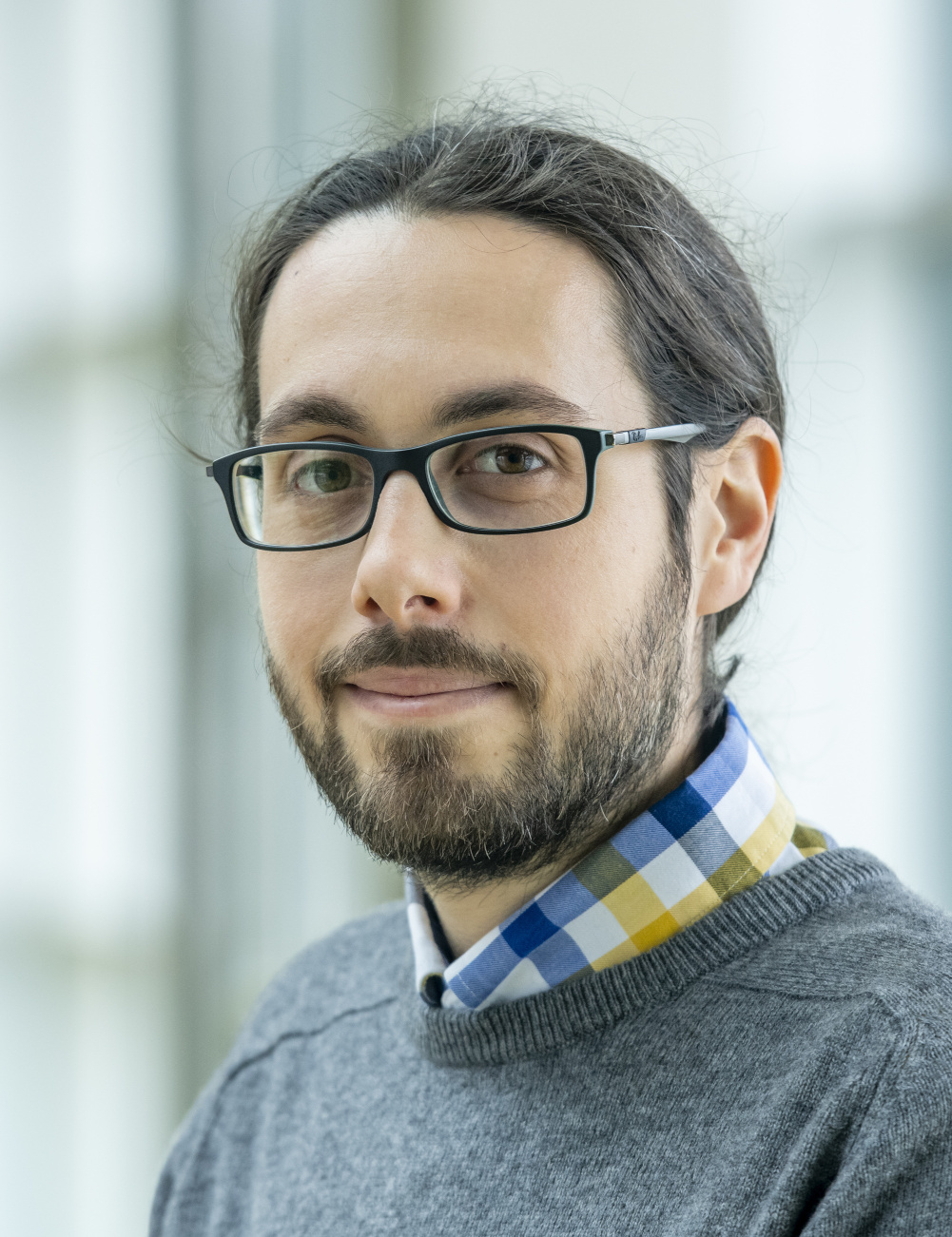
Spyros has a background in semiconductor physics and currently works on the realisation, fabrication and characterisation ofnovel devices based on semiconductors and thin films. His main research interest is around heterogeneous integration of thin filmsand semiconductors to enable applications in novel memories and beyond-CMOS electronics. He is also responsible for developingnew fabrication and testing processes that cut across the different CEF areas of research.
- MSc Applied Physics - Nat. University of Athens - 2009
- PhD Applied Physics - Nat. University of Athens - 2015
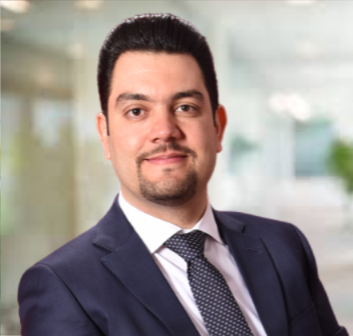
- Ph.D. in Electrical Engineering, University of Isfahan, Iran, 2016.
- M.Sc. in Electrical Engineering, University of Kashan, Iran, 2011.
- B.Sc. in Electrical Engineering, Shahid Bahonar University of Kerman, Iran, 2008.
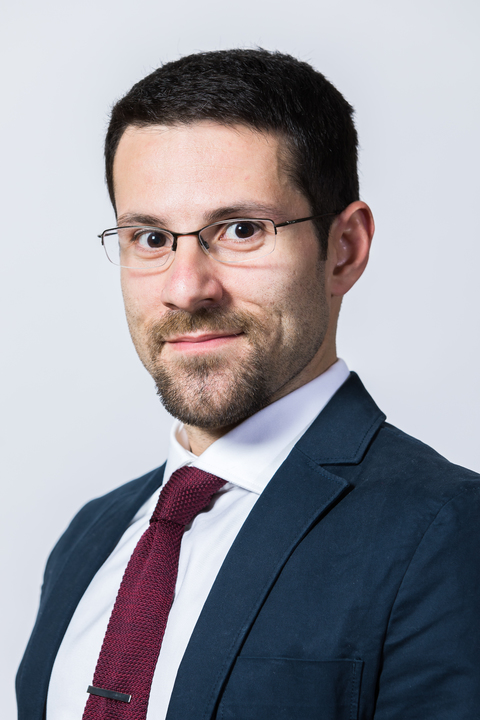
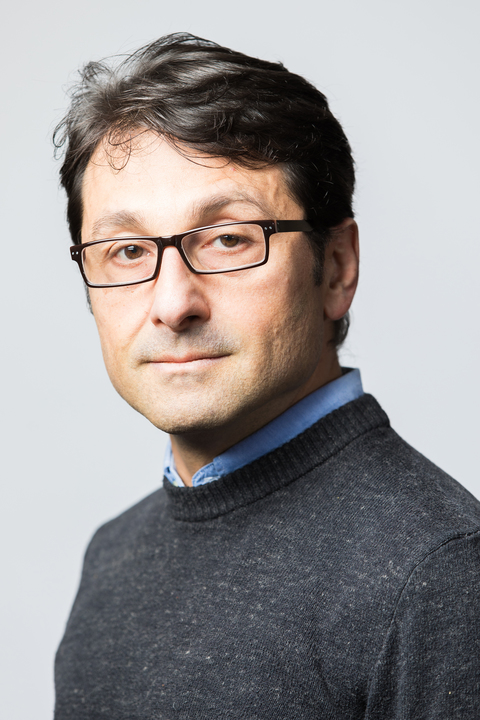
- BEng
- PhD
- Senior Member of The Institution for Electrical and Electronic Engineers (SMIEEE)
- Fellow of the Institution for Engineering and Technology (FIET)
- Chartered Engineer (CEng)
- Embedded and Wireless Systems - MEng (year 5) and MSc
- Radio Frequency Engineering - Year 4
- Engineering Software -Year 3
- Digital System Design - Year 3
- Coordinator of MEng Programme
- Leader Digital Teaching Subject Group
- High Performance Reconfigurable Architectures
- Low Power Design techniques and strategies.
- Reliable Operating System and Software for Reconfigurable Systems
- Positioning and Location Indoors and in Urban canyons
- Use of sensors for positioning, localisation and tracking.
- Use of wireless technologies for positioning, localisation and tracking.
- Smart Antenna and Radio Frequency (RF) Systems
- RF MEMS devices such as switches and phase shifters
- Design for Mission Critical and Harsh environments
- Evolvable, bioinspired, and adaptive hardware and software systems.
- Multi-objective optimisation.
- Member of the IEEE Executive Technical Committee for VLSI Systems and Applications
- Leader of Embedded Wireless, and Wearable Sensor Systems Group
- Co-Founder and Chief Technology Officer sensewhere Ltd.
- Co-Founder Sofant Technolgies
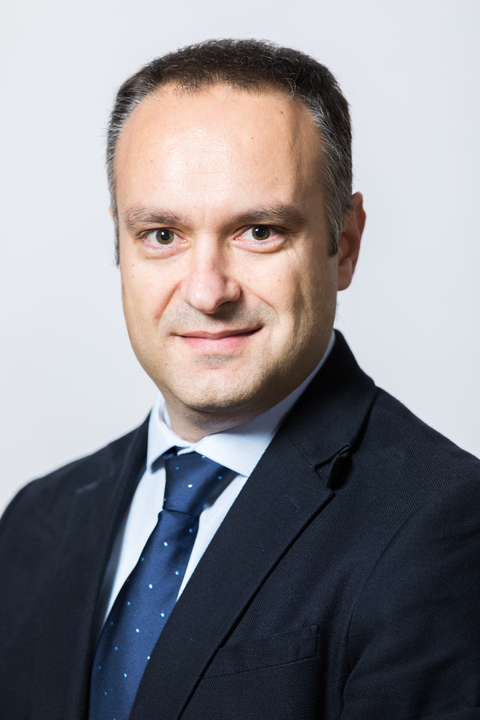
I am an electrical power engineer by training, holding the Personal Chair of Agile Energy Systems at the School of Engineering of the University of Edinburgh.
As a member of the Institute for Energy Systems I lead the Agile Energy Systems Research Group, conducting interdisciplinary research in the areas of renewable energy conversion and integration, smart grids, and robotics and smart materials for energy applications. Our group currently comprises 9 Doctoral and Postdoctoral Researchers and has already graduated an additional 10 PhDs. Our research has generated ~100 peer-reviewed publications.
My teaching includes courses on renewable energy, power and control engineering and research methods. I have a strong track record in developing and delivering courses and programme curricula at both under- and postgraduate levels.
My administrative roles include the School's Directorship of Internationalisation - Students, responsible for the strategic development and delivery of the School's international academic partnerships, while I am also the founding Programme Director of the MSc in Electrical Power Engineering and the 2-year MSc in Advanced Power Engineering.
- BEng Electronics Engineering, Technological Educational Institute of Crete (TEIC), 1999
- Postgraduate Diploma in Communications, Control & DSP, University of Strathclyde, 2000
- PhD in Electrical Power Engineering, University of Edinburgh, 2005
- Senior Member of the Institute of Electrical and Electronic Engineers (IEEE)
- Member of the Institution of Engineering & Technology (IET)
Control & Instrumentation Engineering 3Course Organiser 3rd Year Mechanical Engineering / Electrical Engineering
Solar Energy & Photovoltaic SystemsCourse Organiser MSc in Sustainable Energy Systems / Electrical & Advanced Power Engineering
Solar Energy Conversion 5Course Organiser 5th Year MEng Undergraduate Programmes
Engineering Research Methods with Grand ChallengeCourse Organiser (2018-2021) Core course for all Engineering MScs
- Power System Modelling
- Distributed Generation
- Renewable Energy
- Smart Grids & Demand Side Management
Since 2018 I have been a Visiting Professor at the China-UK Low Carbon College of the Shanghai Jiao-Tong University, China. I am currently Associate Editor of the IET Smart Grid Journal and Member of the Editorial Board of the MDPI EnergiesJournal. I have also been Guest Editor for the Special Issue on Marine Energy, the Special Issue on Data-Driven Methods in Modern Power Engineering and the Special Issue on Advances in Electrical Power Conversion for Energy, Transportation and Industry Applications of the MDPI Energies Journal.
I am a Senior Member of the IEEE and Member of the IET. I am also an active STEM Ambassador for East Scotland, having organised several events promoting Science, Technology, Engineering and Mathematics to the public and especially primary and high school children, specifically in the areas of renewable energy and robotics.
